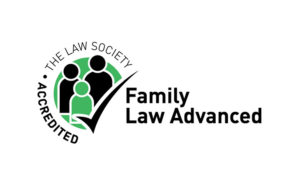Marriage isn’t at the top of every couple’s list of priorities these days. But if you live with your partner (whether or not you plan on getting married or entering into a civil partnership in the future), make sure that your financial interests are protected.
Married spouses and civil partners get special legal rights that allow them to make claims against their partner’s money and property if they break up. If you’re unmarried, however, you don’t have these legal rights.
Some people think that if you live with a partner for long enough, you acquire common law rights – this is referred to as a common-law marriage.
Common-law marriage doesn’t exist in England and Wales. If you and your partner break up or one of you sadly dies, you could end up with nothing, no matter how long you were together.
A cohabitation agreement (also called a living together agreement) is a type of legal document you can make with your partner to make things clear and to protect your financial interests. The document can set out things like how you will divide money and property if you ever break up.
Speak to our specialist cohabitation agreement solicitors
For advice about cohabitation agreement, please contact our local offices in Bury St Edmunds, Cambridge, Ipswich, Leeds or Norwich.
Alternatively, please fill in our online enquiry form, and a member of our team will be in touch shortly.
How our cohabitation agreements solicitors can help you
Advice about making a cohabitation agreement
If you are planning to move in with your unmarried partner or you already live together, our Family Law team can help you make a cohabitation agreement covering matters like:
- Who owns what in your relationship, and how your interests in certain assets are split (e.g. your joint savings, your contributions towards the mortgage or home improvements, your personal belongings, your furniture and your pets)
- How you and your partner will divide your assets if you break up
- How household debts are paid, including if you break up
- How you and your partner will co-parent your children if you break up
We know that talking about money can be a sensitive topic, but it could save you a lot of stress down the line. We’ll make sure that the resulting agreement is fair to you, but we’ll also help you minimise the risk of conflict with your partner.
Cohabitation dispute resolution
If you and your partner have broken up or are planning to break up, our cohabitation solicitors are here to support you and help you resolve any disputes, including those involving money, property and children.
If you have a cohabitation agreement in place, we can review this and provide advice on its terms and enforceability.
If you don’t have a cohabitation agreement in place, we can provide advice about your options, including whether you have any legal claims available to you (such as a claim to stay in your home).
Other legal advice for unmarried couples
As well as advice about cohabitation agreements, we can provide all the other advice you need to protect yourself and the people you love.
Our services include:
- Advice about making a Will – to make sure that your partner can inherit if you pass away
- Conveyancing advice – buying or selling property with your partner, including advice about deeds of trust
- Children law advice – negotiating co-parenting arrangements if you break up and sorting out child maintenance
Our cohabitation agreements fees
We aim to keep our fees clear and proportionate to the outcome you are looking to achieve.
Your first step should be to get in touch with our team to discuss your requirements. During this first conversation, we will provide a quote with a full breakdown of our fees and any anticipated third-party costs.
Wherever possible, we will offer you fixed fees. Otherwise, we will work according to our hourly rates, which vary depending on the level of expertise needed to deal with your matter.
If any additional work is required outside your initial quote, we will always speak to you first before incurring the fees.
Get in touch for a cohabitation agreement quote.
Cohabitation agreements FAQs
Does common law marriage exist in England and Wales?
No, there is no such thing as common law marriage in England and Wales. If you are not married or in a civil partnership with your partner and you break up, you don’t have an automatic right to claim a share of their assets.
What happens if you don’t make a cohabitation agreement?
A cohabitation agreement can protect your financial interests even if you aren’t married or in a civil partnership. Not having a cohabitation agreement in place could affect you in many ways, including:
- If you live in a home that’s in your partner’s name only, you don’t have any interest in that property (unless you can prove that you have acquired a beneficial interest, but this involves a lengthy and complex type of legal claim called a TOLATA claim)
- You can’t ask for spousal maintenance
- Your ex-partner could drain your joint savings account, and you don’t necessarily have any right to claim that money back
Are cohabitation agreements legally binding?
A cohabitation agreement can be enforced by a court if you follow certain legal requirements, including:
- The document must be properly drafted and executed
- Both you and your partner should take independent legal advice
- The agreement should be entered into freely and voluntarily
- The agreement should be signed by both of you
You should also keep the agreement up to date and make sure it reflects any changes in your life circumstances.
Our cohabitation solicitors will make sure that your agreement fulfils all the necessary legal requirements so you can confidently rely on it if you ever need to.
Can we advise both you and your partner about cohabitation agreements?
No, your partner should seek their own independent legal advice. You both need to have a lawyer if you want the agreement to be upheld in court – it’s not enough that just one of you seeks legal advice.
Speak to our specialist cohabitation agreements lawyers for advice
For cohabitation agreement advice, please contact our local offices in Bury St Edmunds, Cambridge, Ipswich, Leeds or Norwich.
To speak to a member of our team today, please use the links below to get in touch.




